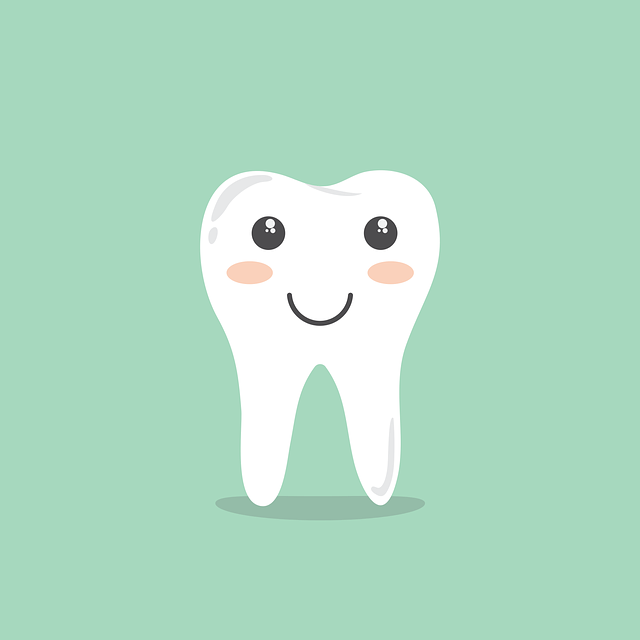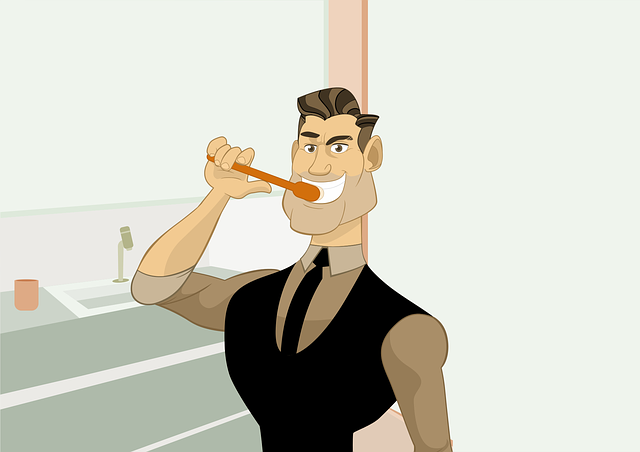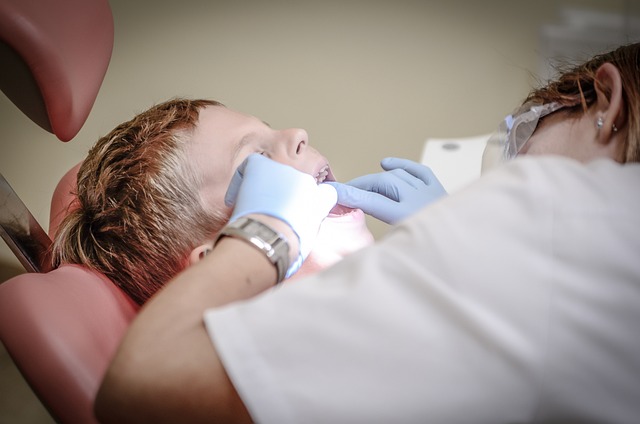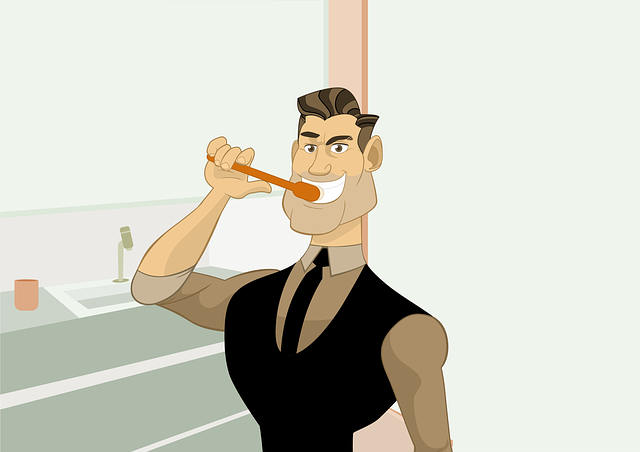Orthodontic Care: What Can I Do If I Lost My Retainer?
Losing a retainer can be quite a frustrating experience. After months of wearing braces and finally achieving that picture-perfect smile, misplacing or damaging your retainer can feel like a major setback. However, fear not! In this article, we will guide you through the necessary steps to take if you find yourself in this predicament. Whether you misplaced it, accidentally threw it away, or your dog decided it would make a great chew toy, we’ve got you covered. So, let’s dive right in and explore the world of orthodontic care, discovering what you can do if you’ve lost your retainer.
1. Understanding the Importance of Retainers in Orthodontic Care
Retainers are an essential component of orthodontic care that often gets overlooked. While braces are responsible for straightening and aligning teeth, retainers play a crucial role in maintaining the results achieved by braces. Understanding the importance of retainers is vital for anyone undergoing orthodontic treatment to ensure lasting and stable outcomes.
One of the primary functions of retainers is to keep teeth in their corrected positions after braces are removed. Without retainers, there is a risk that teeth may gradually shift back to their original misaligned positions, undoing all the progress made during orthodontic treatment. Retainers help stabilize the teeth and prevent relapse, giving the surrounding tissues time to adapt to the new alignment. By wearing retainers as prescribed by your orthodontist, you can maintain your beautiful smile for years to come.

2. Steps to Take When You’ve Lost Your Retainer: A Practical Guide
When you find yourself in the unfortunate situation of having lost your retainer, there are several steps you can take to address the issue promptly and effectively. Follow these practical guidelines to navigate through this setback:
1. Retrace your steps: Start by retracing your recent activities to determine where you might have misplaced your retainer. Check all the places you have been, including your home, school, or workplace. It’s important to remain calm and methodical during this process.
2. Contact your orthodontist: Once you have thoroughly searched for your retainer and have been unsuccessful in finding it, reach out to your orthodontist. They will be able to provide guidance on the next steps and schedule an appointment to assess the situation. It’s crucial to inform them as soon as possible to prevent any potential shifting of your teeth.

3. Exploring Replacement Options for a Lost Retainer
When it comes to replacing a lost retainer, there are several options available that can help you maintain the alignment of your teeth. Here are some alternatives to consider:
- Visit your orthodontist: The first step is to schedule an appointment with your orthodontist. They will assess your teeth and determine the best course of action. They may recommend getting a new retainer made to ensure a proper fit.
- Clear aligners: If you lost your retainer and are looking for a more discreet option, clear aligners can be a great choice. These removable trays are custom-made to gradually shift your teeth into the desired position.
- Hawley retainer: Another traditional option is the Hawley retainer. This retainer consists of a metal wire that surrounds the teeth and keeps them in place. The wire is attached to a molded acrylic piece that sits against the roof of your mouth.
It’s important to note that each individual’s situation is unique, so consulting with your orthodontist is crucial in determining the most suitable replacement option for your lost retainer. They will consider factors such as the progress of your orthodontic treatment, your dental health, and your personal preferences. Remember, replacing your retainer promptly is essential to prevent any undesired shifting or relapse of your teeth.

4. Seeking Professional Orthodontic Advice: Why It’s Essential
When it comes to orthodontic treatment, seeking professional advice is absolutely essential. Orthodontists are dental specialists who have undergone additional training to diagnose and treat dental and facial irregularities. They have the expertise and experience to provide personalized treatment plans that address your specific needs.
Here are a few reasons why seeking professional orthodontic advice is crucial:
- Accurate Diagnosis: Orthodontists possess in-depth knowledge of dental and facial anatomy. They can accurately diagnose orthodontic issues such as misaligned bites, crowded teeth, or jaw irregularities. With their expertise, they can identify the root cause of your dental problems and develop a tailored treatment plan.
- Specialized Treatment: Orthodontists offer a wide range of treatment options to correct dental issues. Whether it’s traditional braces, clear aligners, or other orthodontic appliances, they can recommend the most suitable treatment for your individual needs. With their specialized knowledge, they ensure that your treatment is efficient and effective.
- Long-Term Benefits: Professional orthodontic advice not only focuses on straightening your teeth but also considers long-term oral health. Orthodontists aim to improve your bite, jaw alignment, and overall dental function. By addressing these issues, they can prevent future dental problems and enhance your oral well-being.
Remember, when it comes to orthodontic treatment, relying on professional advice is key to achieving a healthy and confident smile. Consult with an orthodontist to receive the best possible care and guidance for your specific orthodontic needs.

5. Maintaining Orthodontic Progress: Temporary Solutions for Lost Retainers
Retainers are an essential part of orthodontic treatment, as they help maintain the progress achieved by braces or aligners. However, it’s not uncommon for retainers to occasionally get lost or damaged. If you find yourself in this situation, don’t worry! There are several temporary solutions that can help until you’re able to get a replacement retainer.
1. Contact your orthodontist: The first step is to reach out to your orthodontist as soon as possible. They will be able to advise you on the best course of action and may even be able to provide a temporary retainer until you can get a replacement. Make sure to explain the situation in detail and follow their instructions carefully.
2. Utilize a backup retainer: If you have a backup retainer from a previous stage of treatment, it can be used temporarily until you can get a replacement. However, keep in mind that this may not fit as well as your current retainer, so it’s important to contact your orthodontist for guidance.
6. Preventing Future Retainer Mishaps: Tips for Care and Storage
Retainers are an essential tool for maintaining a beautiful smile after orthodontic treatment. However, mishaps can occur if proper care and storage are not followed. To prevent future retainer mishaps, here are some valuable tips:
- Clean your retainer daily: Proper hygiene is crucial to prevent the buildup of bacteria and plaque. Gently brush your retainer with a soft toothbrush and mild soap or non-abrasive toothpaste. Rinse thoroughly to avoid leaving any residue.
- Store your retainer properly: When not in use, it is important to store your retainer in a protective case. This will prevent damage and minimize the risk of loss or misplacement. Keep the case in a safe, easily accessible location.
- Avoid exposing your retainer to heat: High temperatures can cause your retainer to warp or lose its shape. Avoid leaving your retainer in direct sunlight, hot water, or near any heat sources to ensure its longevity.
Replace your retainer when necessary: Over time, retainers may become worn out or lose their effectiveness. If you notice any cracks, breaks, or changes in fit, consult your orthodontist for a replacement. It is essential to wear a properly functioning retainer to maintain the results of your orthodontic treatment.
By following these tips for care and storage, you can prevent future retainer mishaps and continue to enjoy the benefits of a healthy, aligned smile. Remember, maintaining good oral hygiene and regularly visiting your orthodontist are also essential in ensuring the long-term success of your orthodontic treatment.
7. Frequently Asked Questions About Lost Retainers and Orthodontic Care
Q: What should I do if I lost my retainer?
A: If you have lost your retainer, it is important to contact your orthodontist as soon as possible. They will guide you on the next steps, which may include getting a replacement retainer or adjusting your treatment plan. It is crucial to address this issue promptly to prevent any unwanted shifting of your teeth.
Q: Can I wear my old retainer if I lost my current one?
A: It is not recommended to wear your old retainer if you have lost your current one. Each retainer is custom-made to fit your teeth at a specific stage of your orthodontic treatment. Wearing an old retainer may not provide the necessary support and could potentially hinder your progress. Contact your orthodontist to discuss the best course of action in this situation.
Frequently Asked Questions
Q: What should I do if I lose my retainer?
A: Losing your retainer can be frustrating, but there are steps you can take to address the situation.
Q: Can I temporarily replace my lost retainer with something else?
A: While it may be tempting to use a temporary substitute, it is best to consult your orthodontist for guidance.
Q: Will my teeth shift if I don’t wear a retainer?
A: Yes, without wearing a retainer as prescribed, there is a possibility that your teeth may shift over time.
Q: Can I order a new retainer online?
A: It is not recommended to order a new retainer online without professional guidance, as an ill-fitting retainer can have negative consequences.
Q: What should I do if I cannot afford a new retainer?
A: If cost is a concern, discuss this with your orthodontist. They may be able to provide alternative options or suggest payment plans to make it more affordable.
Q: How long should I wait before replacing a lost retainer?
A: It is important to address a lost retainer as soon as possible to prevent any unwanted tooth movement. Contact your orthodontist promptly to discuss the next steps.
Q: Are there any preventive measures to avoid losing a retainer?
A: Yes, there are a few preventive measures you can take, such as keeping your retainer in a designated case when not in use and being mindful of where you place it.
Q: Can my retainer be replaced if it was damaged or broken?
A: Depending on the extent of the damage, your orthodontist will assess whether it can be repaired or if a replacement is necessary. Schedule an appointment to discuss your options.
Q: What if I am away from home and lose my retainer?
A: In such cases, contact your orthodontist immediately. They may be able to recommend a local orthodontist who can assist you or provide further instructions on what to do.
Q: How important is it to wear a retainer after orthodontic treatment?
A: Wearing a retainer as instructed by your orthodontist is crucial to maintain the results of your orthodontic treatment. It helps prevent any relapse and keeps your teeth aligned.
To Wrap It Up
In conclusion, losing your retainer is a common concern that many individuals face during their orthodontic care journey. However, there are several steps you can take to address this situation effectively. Firstly, contact your orthodontist as soon as possible to discuss your options and schedule a replacement appointment. Meanwhile, do not attempt to adjust your teeth on your own, as this can lead to further complications. Secondly, be mindful of maintaining good oral hygiene by brushing and flossing regularly, as well as avoiding sticky and hard foods that could potentially damage your teeth. Lastly, always handle your retainer with care to prevent any future mishaps. Remember, by taking immediate action and seeking professional guidance, you can ensure that your orthodontic treatment stays on track and your smile remains healthy and beautiful.





